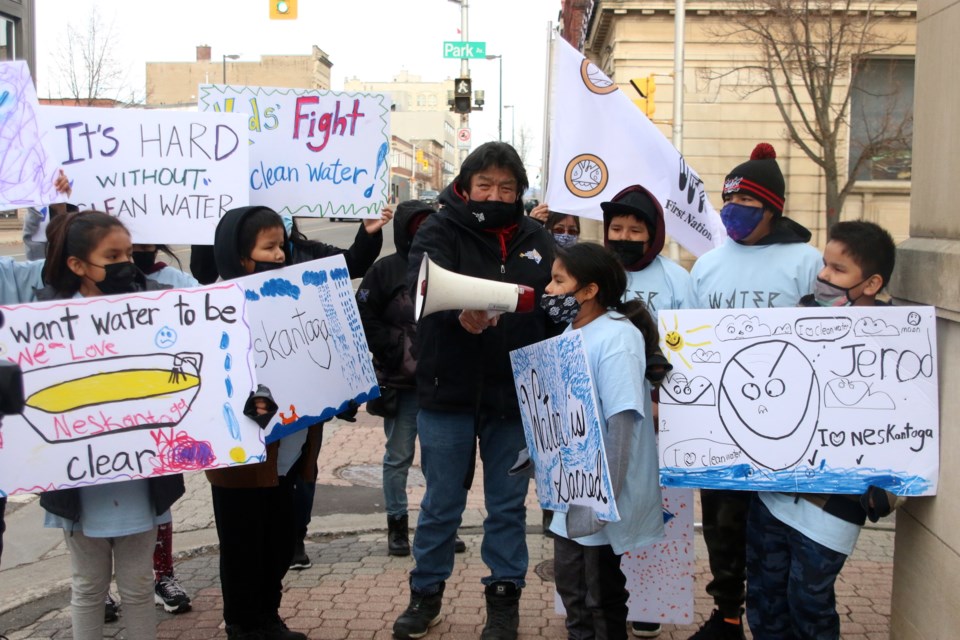NISHNAWBE ASK NATION - “It is shameful that with all the talk of reconciliation,” said Grand Chief Derek Fox. “Neskantaga has surpassed the grim milestone of 10,000 days without clean drinking water.”
Neskantaga First Nation is a remote Oji-Cree community in Treaty No. 9 territory on the shores of Attawapiskat Lake in the District of Kenora, approximately 430 kilometres northeast of Thunder Bay.
Since 1995, Neskantaga First Nation has been under the longest boil water advisory in Canadian history. With government funding, a new water treatment plant was constructed in 2016.
In 2017, the federal government announced $8.8 million in upgrades to the water treatment plant in Neskantaga First Nation, yet due to constant equipment and infrastructure failures, these upgrades aren’t able to be put into production.
With the project continuing to be a work in progress, there is no timeline set for when the plant will be operational.
“We acknowledge this government’s commitments to resolving these issues in our communities, including developing new policies around operation and maintenance funding, but these are vague, open-ended goals without firm timelines or accountability,” Fox continues. “We need a plan, with a clear path of action, and we ask this government to work with leadership to resolve the issues that Chiefs and Councils have identified.”
Over the past three years, Neskantaga First Nations have been working with the federal government to determine the root cause of the problem.
In a 2021 report by the Parliamentary Budget Officer, details highlighted the inadequacy of operation and maintenance funding for First Nations water systems. It called for firm funding commitments which were not addressed in the last federal budget.
“It is tragic that the people of Neskantaga, as some of the First Peoples of the Land, have experienced life for 10,000 days on a boil water advisory. There is no denying that this has come with many unnecessary tolls and costs,” said David Paul Achneepineskum, Matawa’s chief executive officer. “We have followed this community’s issues since their (now decrepit) water treatment plant was built. We have seen how hard the community has worked to address the root causes of the longest boil water advisory in the country and how this has truly challenged the government. Short of bringing this issue to the United Nations, the chief and council are doing everything they can. We truly hope they can work towards meaningfully addressing this human rights violation/major stressor soon so that Indigenous Peoples can have some semblance of a good life on Turtle Island (Canada).”
In 2016, the federal government pledged to end long-term drinking water advisories in First Nations communities by 2021.
However, there are still 34 long-term drinking water advisories in effect in 29 First Nations communities across the country, which is seen as a failure of the Canadian government to provide the necessary support to ensure that First Nations communities have access to safe drinking water.
